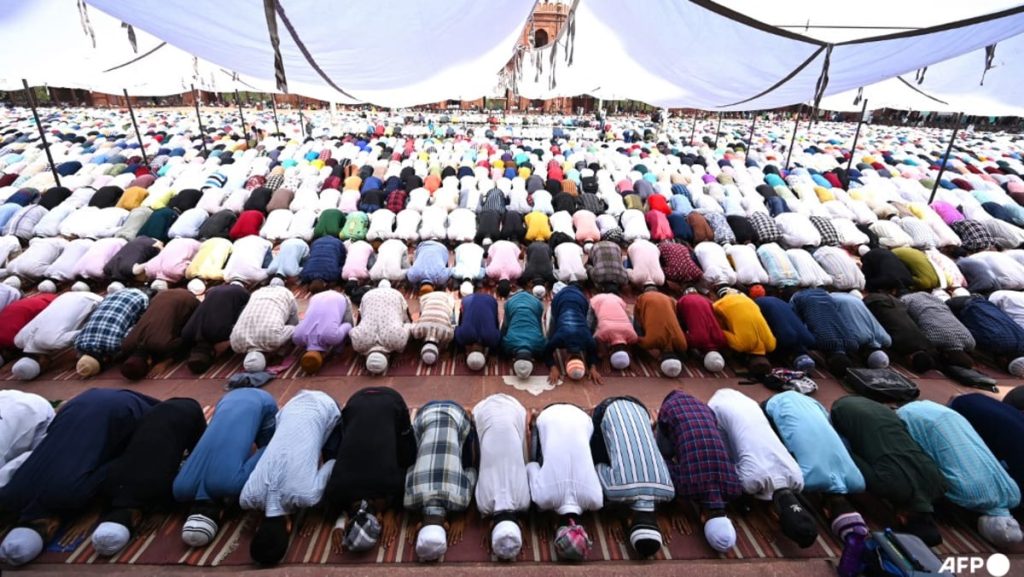Rampur, a city in India with a majority Muslim population, currently has a member of parliament who strongly supports Prime Minister Narendra Modi’s Hindu-first agenda. This is a common situation in India, where many see victory for Modi’s Bharatiya Janata Party (BJP) as almost certain in the upcoming general elections and view Muslim candidates as a recipe for defeat at the ballot box. Despite Muslims making up nearly a fifth of India’s population, the representation of Muslim politicians in parliament has decreased significantly since the 1970s.
Ghanshyam Singh Lodhi, a Hindu MP from Rampur, is confident of his re-election in the upcoming elections. He replaced Rampur’s previous Muslim MP in a by-election in 2022 when he switched allegiance to the BJP. This lack of Muslim representation in the BJP is a concern for many leaders of the Muslim community, as only 27 out of 543 members of the lower house of parliament are Muslims. The absence of Muslim leadership in Indian politics is attributed to the longstanding trust that Muslims had placed in secular parties.
According to Ziya Us Salam, author of a book on Muslims in India, the idea of an openly Muslim leader would be seen as divisive, while Modi’s promotion of a Hindu state does not face the same scrutiny. Salam also suggests that electoral boundaries have been redrawn to dilute areas with significant Muslim populations, leaving Muslims feeling disenfranchised in the political process. Rampur, which has traditionally elected Muslim MPs, is facing a challenge with the BJP’s stronghold in the city making it difficult for Muslim candidates to win.
The previous Muslim MP from Rampur, Mohammad Azam Khan, resigned after facing a multitude of legal cases, including charges of land grabbing and intimidating government officials. Supporters of Khan claim that many of these accusations were politically motivated and brought up after the BJP’s victory in state elections in 2017. Khan was eventually sentenced to three years in prison for hate speech against BJP rivals in 2023. The situation in Rampur highlights the challenges faced by Muslim candidates in Indian politics and the lack of representation for the Muslim community in the current political landscape.


